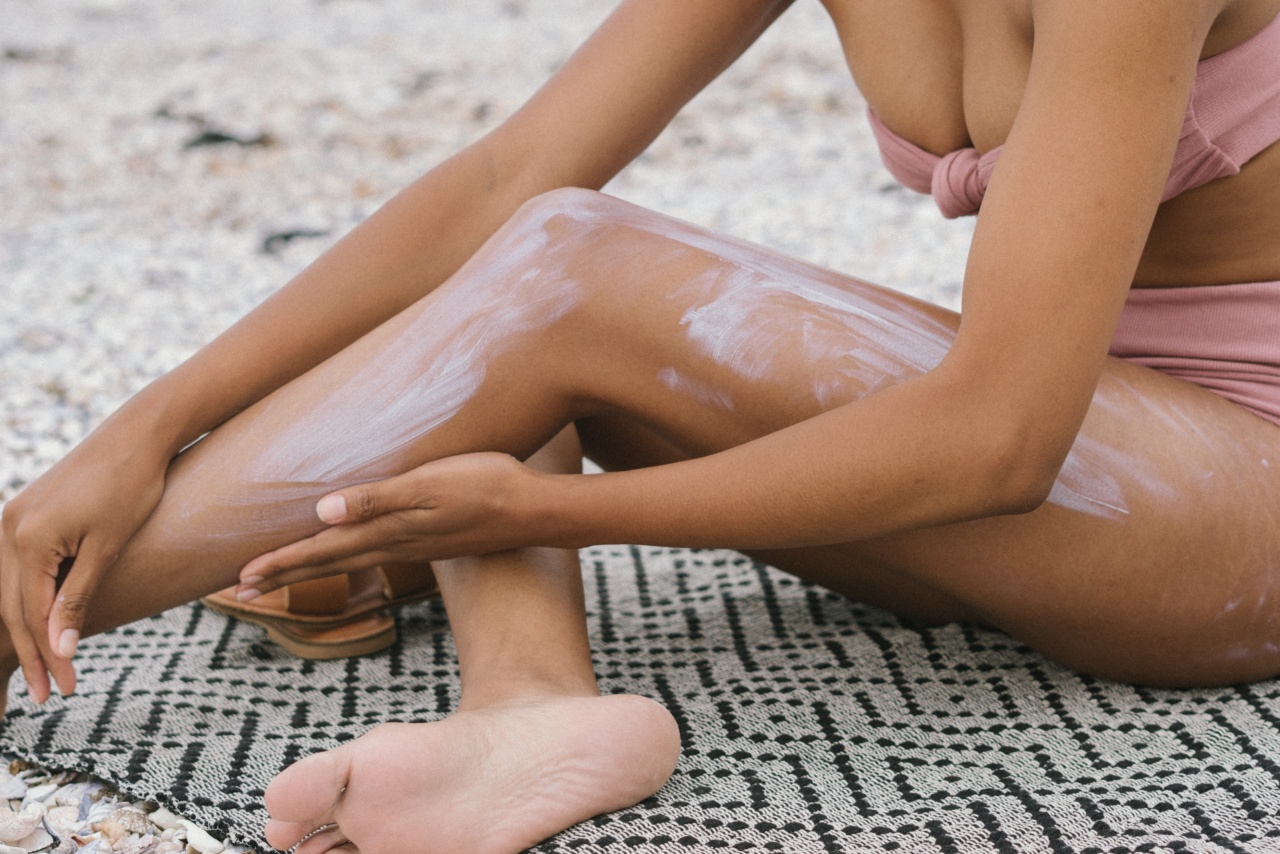Summer is the season we all look forward to—the endless days of sunshine, warm weather, and outdoor activities. However, with summer comes increased humidity levels, which can wreak havoc on your skin.
The high moisture content in the air not only makes us feel sticky and uncomfortable but can also lead to various skin problems. Don’t let summer humidity harm your skin. In this article, we will discuss the effects of humidity on the skin and provide tips on how to protect and care for your skin during the humid summer months.
The Effects of Humidity on the Skin
Humidity refers to the amount of moisture present in the air. During summer, humidity levels tend to skyrocket, making the air heavy and sticky. While humidity may be great for your indoor plants, it can spell trouble for your skin.
Here are some of the common effects of humidity on the skin:.
1. Excess Sebum Production
High humidity can cause your sebaceous glands to go into overdrive, resulting in increased sebum production. This excess oil can clog your pores and lead to acne breakouts, blackheads, and a greasy complexion.
If you already have oily or acne-prone skin, summer humidity can aggravate these conditions.
2. Skin Congestion and Dullness
When the air is humid, sweat and oil mix together, leading to congested pores. This congestion can make your skin look dull, congested, and lackluster. If you notice that your skin appears less radiant during the summer, humidity might be to blame.
3. Increased Sensitivity
Humidity can make your skin more sensitive and reactive. This increased sensitivity can manifest as redness, irritation, and flare-ups of existing skin conditions such as eczema or rosacea.
High humidity levels can also disrupt the skin’s natural barrier function, leaving it more susceptible to external irritants.
4. Fungal Infections
Fungal infections thrive in warm and humid environments. Sweat and moisture create an ideal breeding ground for fungi, leading to infections such as athlete’s foot, jock itch, and yeast infections.
These infections can affect various areas of the body, including the skin, nails, and scalp.
5. Dehydration
While it might seem counterintuitive, humidity can actually dehydrate your skin. The excessive moisture in the air can cause your skin to lose water and become dehydrated.
Dehydrated skin can feel tight and rough and may be more prone to fine lines and wrinkles.
Tips to Protect Your Skin from Summer Humidity
Now that we understand how summer humidity can harm our skin, let’s explore some effective ways to protect and care for our skin during the humid months:.
1. Cleanse Your Skin Regularly
Proper cleansing is crucial during summer, especially if you have oily or acne-prone skin. Use a gentle cleanser that suits your skin type to remove excess oil, sweat, and impurities.
Avoid harsh cleansers, as they can strip your skin of its natural oils and disrupt its balance.
2. Exfoliate to Remove Dead Skin Cells
Regular exfoliation helps unclog pores and remove dead skin cells, promoting a brighter and more even complexion. Opt for a physical or chemical exfoliator, depending on your skin’s sensitivity.
However, be mindful not to over-exfoliate, as it can lead to irritation and dryness.
3. Hydrate Your Skin
Even though humidity can cause dehydration, it is essential to keep your skin hydrated. Use a lightweight, oil-free moisturizer that provides hydration without clogging your pores.
Look for moisturizers with ingredients like hyaluronic acid or glycerin, which help attract and retain moisture.
4. Use Oil-Free and Non-Comedogenic Products
During summer, switch to oil-free and non-comedogenic products to prevent clogged pores and acne breakouts. These products are specially formulated to be light on the skin and won’t exacerbate oiliness or congestion.
Look for labels that mention “oil-free” or “non-comedogenic.”.
5. Wear Sunscreen
Never skip sunscreen, regardless of the humidity levels. Choose a broad-spectrum sunscreen with an SPF of 30 or higher and apply it generously to all exposed areas of the skin.
Look for lightweight, oil-free sunscreens that won’t feel heavy or greasy when humidity levels are high.
6. Shower after Sweating
If you have been sweating heavily, whether from outdoor activities or exercising, make sure to shower as soon as possible. Sweat, when mixed with bacteria and dead skin cells, can lead to clogged pores and skin irritation.
Use a gentle cleanser and pat your skin dry instead of rubbing it vigorously.
7. Be Mindful of Air Conditioning
While air conditioning provides relief from the heat, it can also contribute to dryness and dehydration. The cold air from AC units tends to have lower humidity levels, which can strip your skin of moisture.
Consider using a humidifier alongside your AC unit to add moisture back into the air.
8. Stay Hydrated
Combat the effects of humidity on your skin by staying hydrated from within. Drink plenty of water throughout the day, even if you don’t feel particularly thirsty. Water helps flush out toxins from your body and keeps your skin plump and radiant.
9. Avoid Heavy Makeup
During humid summer days, it’s best to embrace lightweight and minimal makeup. Heavy makeup can mix with sweat and oil, clogging your pores and leading to breakouts.
Opt for tinted moisturizers, lightweight foundations, or simply embrace your natural skin by focusing on a skincare routine.
10. Seek Shade and Stay Cool
Avoid prolonged exposure to direct sunlight and seek shade whenever possible. Overexposure to the sun can lead to sunburn and other skin damage, which can be exacerbated by high humidity.
Wear a wide-brimmed hat, lightweight clothing, and stay in shaded areas during peak sun hours.
Conclusion
Summer humidity can certainly pose challenges to your skin, but with the right skincare routine and precautions, you can navigate the season with ease.
By following the tips mentioned in this article, you can protect your skin from excess sebum production, congestion, sensitivity, and dehydration. Embrace the joys of summer while keeping your skin happy, healthy, and glowing!.































